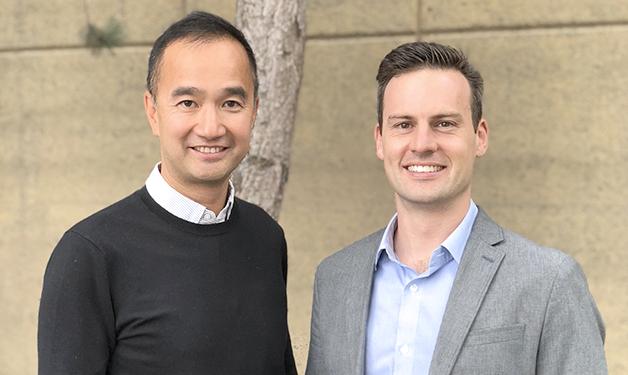
News Release | IND.234 is the first prostate precision medicine trial to use liquid biopsies for genomic testing
Vancouver, British Columbia - November 27, 2018 – A new clinical trial, opening across Canada, is considered a major advancement in precision medicine for prostate cancer and the first of its kind in the world. The IND.234 clinical trial, conducted by the Canadian Cancer Trials Group (CCTG), uses liquid biopsy technology to screen for genomic markers in prostate cancer patients.
After a blood test (liquid biopsy) analysis, patients with specific DNA markers are assigned to one of five new therapies that will treat their unique form of prostate cancer. Researchers want to see if the markers identified in the screening process can help predict which patients will be helped the most by the targeted treatments.
“There is an urgent need to find more effective therapies for men with advanced prostate cancer and an individual’s cancer is unique, so a one-size-fits-all solution may not be the best,” says Dr. Kim Chi, Medical Oncologist, and Medical Director at BC Cancer leading the trial. “We want to identify men whose cancers will have the best chance to respond to the experimental new drug therapies we are testing in this trial.”
Jim, one of the first trial participants being treated at Ottawa Hospital Cancer Centre, shares his experience, “When I was first diagnosed with prostate cancer, I understood that this type of cancer was not good. When my oncologist offered me the chance to receive a new potential treatment, I was willing to try anything that might make a difference. They sent my blood to be tested in BC and then I was enrolled, it was simple — now I take my pills and track any side effects.”
Although tumour samples taken at diagnosis can be tested for DNA markers, in order to provide current genomic information patients would need an additional invasive biopsy – using a liquid biopsy to provide the information could remove the need for surgery.
“The technology and computation required to study a person’s cancer using only a blood sample is very novel and experimental. This team has helped lead the charge for liquid biopsies to be part of prostate cancer clinical research,” says Dr. Alexander Wyatt who is leading the DNA analysis and is a Senior Research Scientist at the Vancouver Prostate Centre and the Vancouver Coastal Health Research Institute. “Few other research studies in the world are able to draw upon this combination of advanced prostate cancer focus and liquid biopsy tools.”
“BC Cancer Foundation’s passionate donors have enabled a world-first precision medicine trial using liquid biopsies to come to fruition, which will significantly improve patient outcomes,” says Sarah Roth, president and CEO, BC Cancer Foundation. “The brilliant minds at BC Cancer continue to move the dial in research and care, benefiting families across Canada facing cancer today.”
“The IND.234 trial is a perfect example of Canadian excellence in research and innovation translating into new treatment approaches. The Canadian Cancer Society is committed to supporting the full range of cancer research – from the basic laboratory science behind game-changing discoveries to the clinical trials that bring discoveries to patients,” explains Judy Bray, Vice President, Research, Canadian Cancer Society. “Trials like this one would be not be possible without the generosity of our donors, who enable us to fund the best cancer research and offer hope to patients across the country.”
Canadian research innovation and collaboration
IND.234 is the first trial that evaluates a precision medicine approach for patients with advanced prostate cancer using liquid biopsies for genomic testing. The trial is supported by a core grant from the Canadian Cancer Society, with the liquid biopsy testing supported by the BC Cancer Foundation and The Canadian Cancer Clinical Trials Network (3CTN) with liquid biopsy testing performed through the Vancouver Prostate Centre. Other partners are contributing to specific treatment (drug) arms of the study.
About the Canadian Cancer Trials Group
The Canadian Cancer Trials Group (CCTG) is a cancer clinical trials research cooperative that runs phase I-III trials to test anti-cancer and supportive therapies in over 80 institutions across Canada and internationally. We are supported by core funding from the Canadian Cancer Society. From our centre at Queen’s University in Kingston, Ontario, we have supported over 500 trials in over 40 countries aimed at improving survival and quality of life for all people with cancer.


